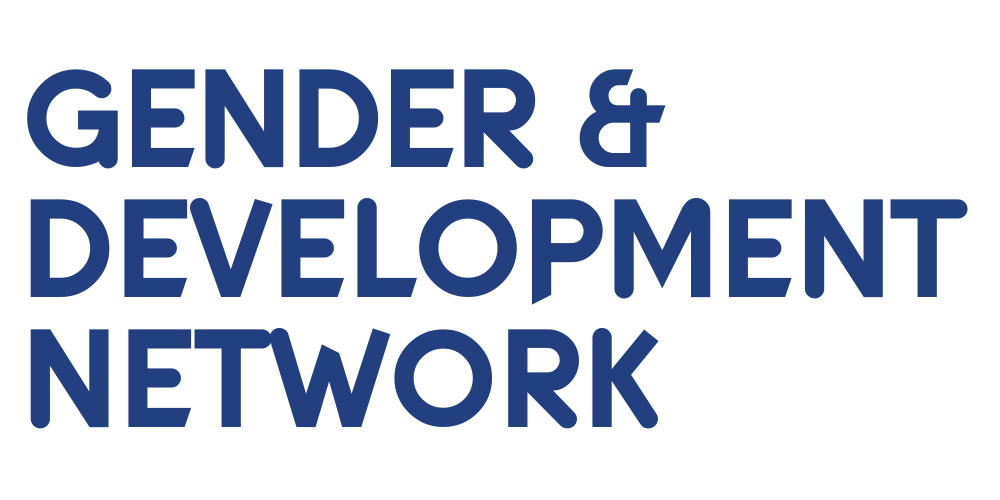Addressing systemic racism and decolonising the international development sector
November 2020
GADN Members’ Meeting
The Black Lives Matter movement has firmly placed the issue of racial injustice on the global agenda, and the UK international development sector is not exempt from the reckoning that has ensued.
As international development practitioners working on gender equality and women’s rights, GADN’s November members’ meeting looked at how we can apply an anti-racist and decolonial lens to our work. The meeting introduced GADN members to the concept of ‘decolonising development’ as well discussing how we begin the process of decolonisation and what such a practise aims to achieve.
Speakers:
Dr Lata Narayanaswamy - Associate Professor in the Politics of Global Development at the School of Politics and International Studies at the University of Leeds
Saranel Benjamin - Head of Partnerships, Impact Division, Oxfam GB
Reading Recommendations
On Decolonising Development:
Pluriverse: A Post-Development Dictionary – open access and offers short chapters to dip into a range of ideas about ‘alternative’ approaches to conceptualising the world. It is theoretical but very accessible, and also features many dynamic engagements with ‘gender’ and ‘feminism’.
Open Science Beyond Open Access: For and with communities: A step towards the decolonization of knowledge – tries to widen our understanding and think more inclusively about the accessibility of ideas beyond ‘open access’. It also has a series of associated webinars, some of which are yet to take place and are open for anyone to attend: http://unescochair-cbrsr.org/index.php/2020/09/29/open-science-webinar-series/
Decolonisation is not a metaphor - key article in the ‘decolonising development’ discourse, which argues away from thinking that decolonising can become a ‘metaphor’ for greater diversity and inclusion; Tuck and Yang instead argue that we MUST engage with the expropriation and displacement that is at the heart of the colonial project if we are to truly decolonise. Accessibly written and very thought-provoking.
Special Focus: How do we know the world? Collective engagements with the (de)coloniality of development research and teaching’, Acta Academica - an open access journal.
www.convivialthinking.org - curated by Dr. Julia Schöneberg of the University of Kassel which is a site that offers some excellent and accessible blogs
www.connectedsociologies.org - curated by Professor Gurminder Bhambra at the University of Sussex, that provides accessible content to ‘decolonise’ – this is mainly about curriculum, but there are some fantastic video lecture resources that are free to access that provide important historical context for these discussions
Problematising how we approach gendered ‘knowledge’ in development discourse and practice:
Gender, Power and Knowledge for Development by Dr Lata Narayanaswamy - this is also a link to the first 18 pages of the book, which has some important historical context for how we engage with gendered knowledge in development
Rethinking Gender Equality in Global Governance - Concerns around the professionalisation of our communications practices in relation to gender norms are discussed in the chapter entitled ‘Deeds Not Words: The Marginalising Effects of Global Gender Equality Norms’.
On the dominance of certain (Western) ideas and ‘whose knowledge counts’:
Whose feminism counts? Gender(ed) knowledge and professionalisation in development’
What developing countries can teach rich countries about how to respond to a pandemic - Reflecting on the pandemic, colleagues based in Oxford and Nigeria share an up to date reflection as to why asking this question is really crucial, and the material consequences of not having a more dynamic, reciprocal relationship around knowledge sharing with the so-called Global South
On the ‘politics of evidence’:
Negotiating knowledge - raises critical questions about we approach the question of ‘knowledge’ in NGOs
The Big Push Forward - Professor Rosalind Eyben wrote this accessible framing paper as part of a project to interrogate the ‘politics of evidence’
On race, racism, whiteness and development:
https://globalsocialtheory.org/ - this website is curated by Professor Gurminder Bhambra, and has entries on the relationship between gender and colonialism amongst many others
The unbearable whiteness of international development: The SDGs and decolonial feminisms
Webinar hosted by the London International Development Centre (LIDC) discusses racism in development with presentations from a range of experts in this field – the Q&A also raises some really interesting questions and responses that are worth listening to
https://aidnography.blogspot.com - Dr. Tobias Denskus, a Senior Lecturer in Communication for Development at Malmö University, curates an absolutely excellent website entitled ‘Aidnography’ where he collates resources for comms in development, and includes lots of thoughtful and critical insights not just from him but collated from around the world and also features resources on gender
**Our biggest thanks to Dr Lata Narayanaswamy for putting together this list of recommended readings
